Navigating the job market can be challenging, especially when it comes to receiving those dreaded interview request denials. It's natural to feel a mix of disappointment and confusion when a potential opportunity slips away. However, understanding how to craft a thoughtful response can turn a setback into a moment of growth and learning. Keep reading to discover effective strategies for handling these situations with grace and professionalism!
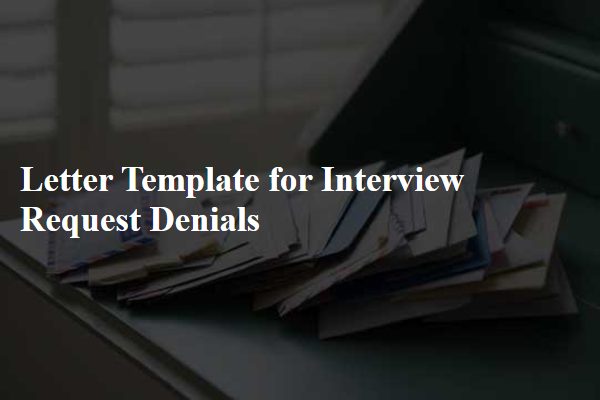
Professional tone
A letter template for interview request denials serves as a formal communication tool used by organizations to inform candidates about the outcome of their application process. This template typically includes a professional salutation, a clear statement of the applicant's denial, and an expression of gratitude for the candidate's interest in the position. The tone remains respectful and empathetic, acknowledging the effort and time the candidate invested in the application. Furthermore, it may offer constructive feedback or encouragement for future opportunities, maintaining a positive relationship between the organization and potential future applicants.
Gratitude for application
Thank you for your application to the [Position Title] at [Company Name]. We appreciate the time and effort you invested in the interview process. After careful consideration, we have decided to move forward with other candidates whose qualifications more closely match our current needs. We encourage you to apply for future openings and wish you the best in your job search. Your interest in [Company Name] is greatly appreciated.
Clear rejection statement
The 2023 job market shows increased competition among candidates seeking opportunities at renowned companies, making rejection notifications commonplace. A clear rejection statement, concise and professional, communicates the decision without ambiguity. Such statements emphasize appreciation for the applicant's interest and time invested in the interview process, while also mentioning any strong points observed during the interview. This approach maintains the company's positive reputation, encouraging applicants to consider future openings.
Encouragement to apply again
In today's competitive job market, receiving a denial for an interview can be disheartening. Many reputable companies, such as Google and Microsoft, often experience high volumes of applications, resulting in rigorous selection processes for positions like Software Engineer or Data Analyst. Throughout this selection cycle, candidates may be encouraged to feel optimistic, as organizations value resilience and continuous improvement. Applicants are usually advised to take feedback into account, enhancing their skills through online courses or relevant projects in platforms like Coursera or GitHub. Demonstrating growth through further experience can lead to future opportunities to join high-profile teams, like those involved in innovative product development or groundbreaking research initiatives. Encouragement to reapply not only reflects the candidate's potential but also the company's commitment to fostering talent within its industry.
Contact information for further inquiries
Candidates often encounter interview request denials, leading to uncertainty about their application status. Employers typically send notification emails (usually containing a standard subject line) indicating that the candidate will not proceed to the interview round. Important details include the company's name, such as XYZ Corporation, and the date of the correspondence. The message may outline reasons for the denial, like the presence of stronger candidates or unsuitable qualifications. Furthermore, employers sometimes provide contact information (such as an HR email address or a phone number) for candidates seeking feedback or clarification regarding their application. This allows candidates to seek valuable insights to improve future applications.

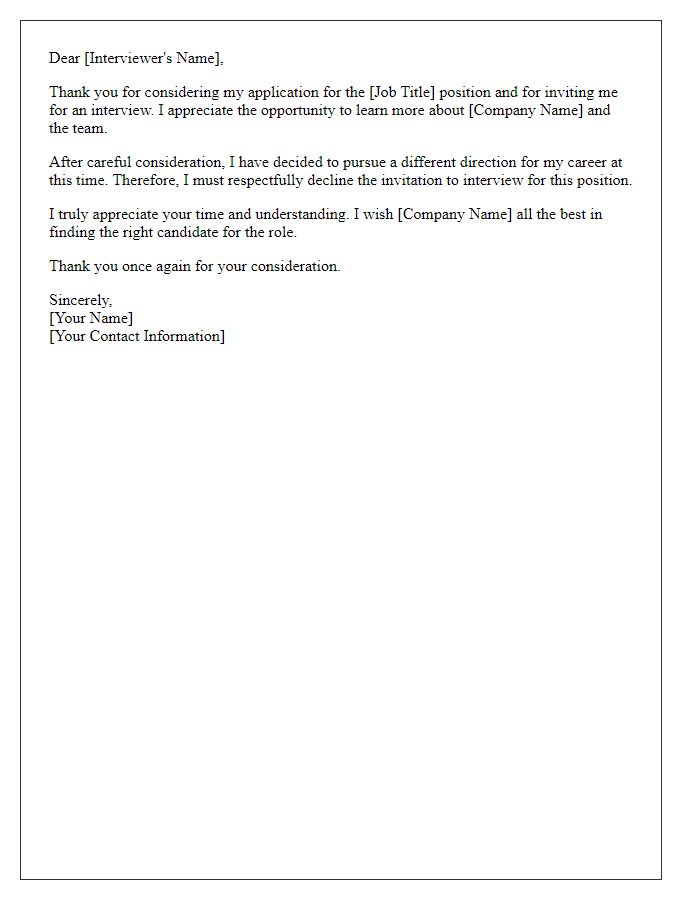
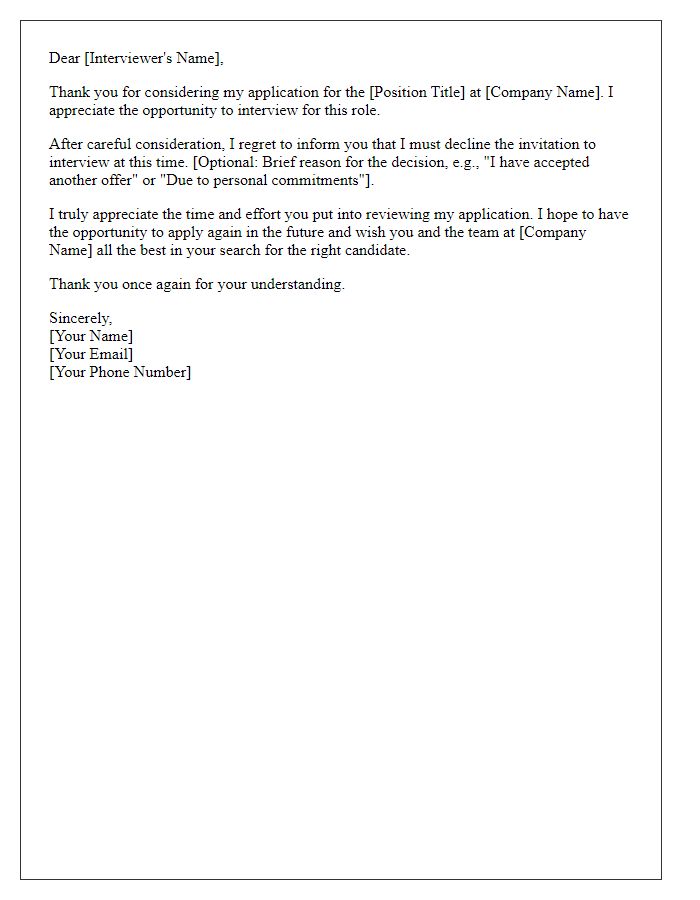
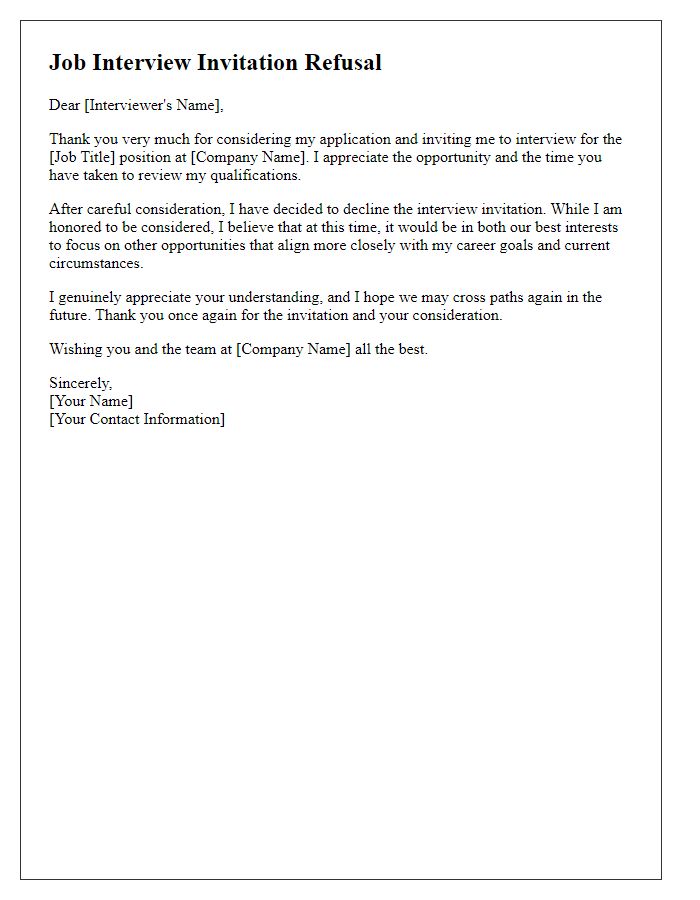
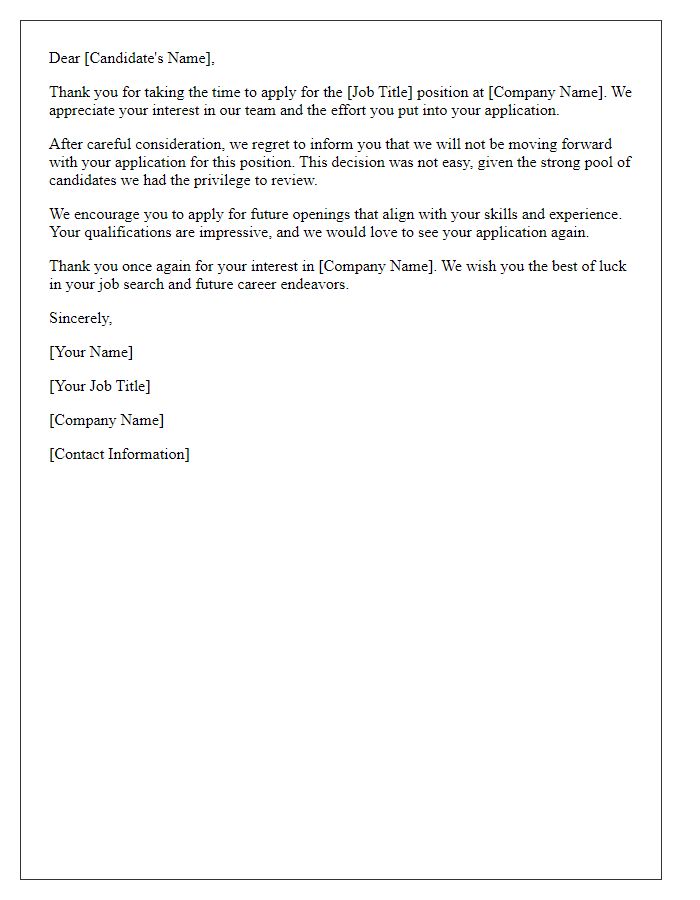
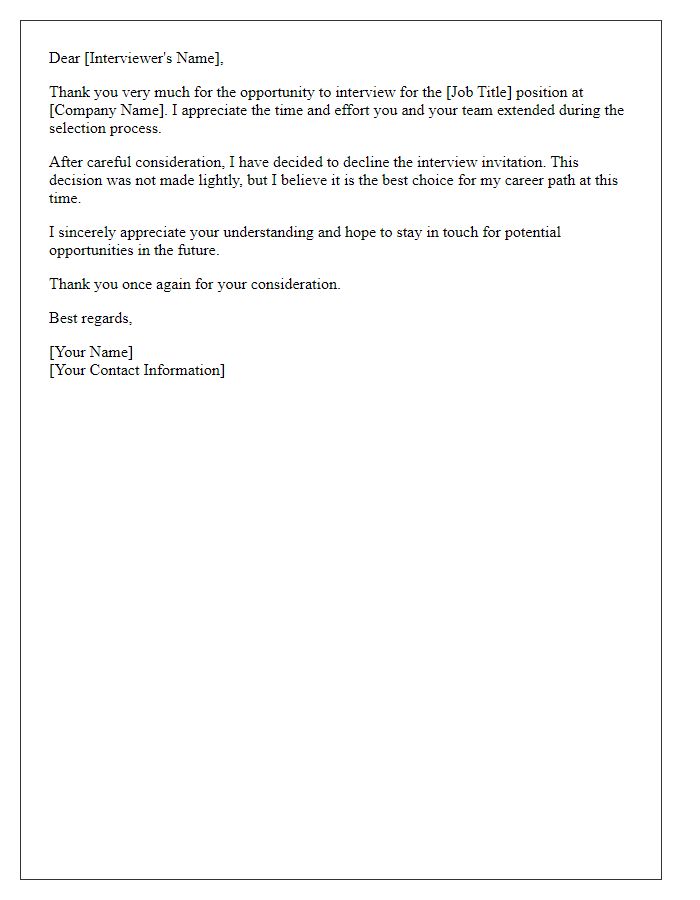
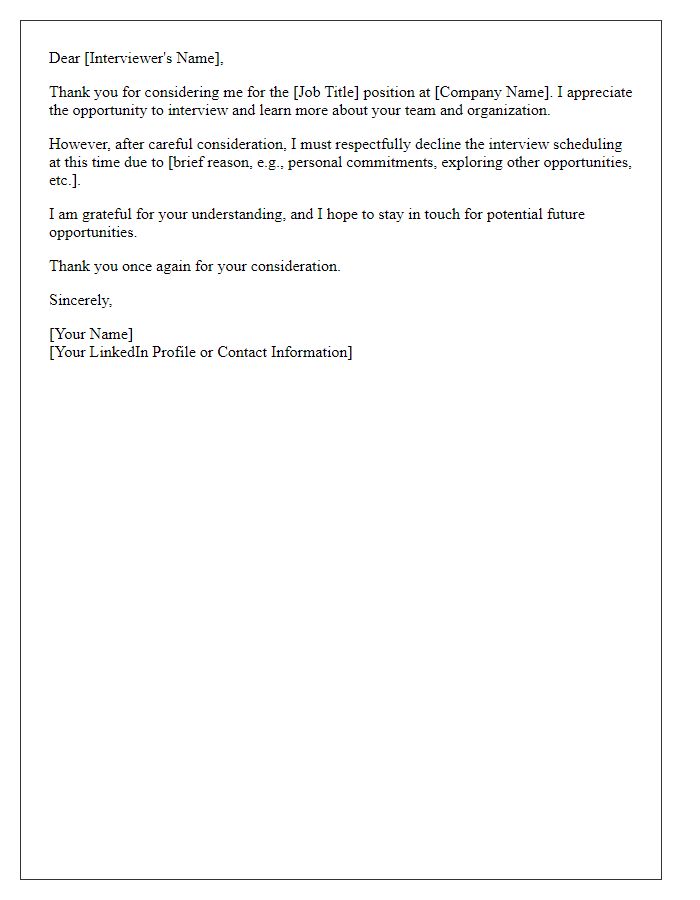
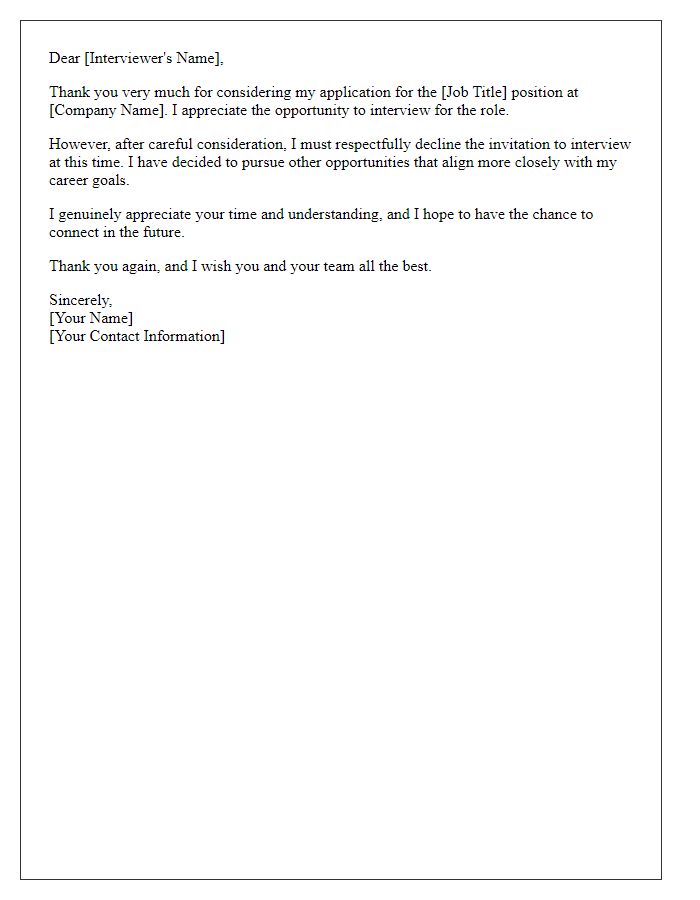
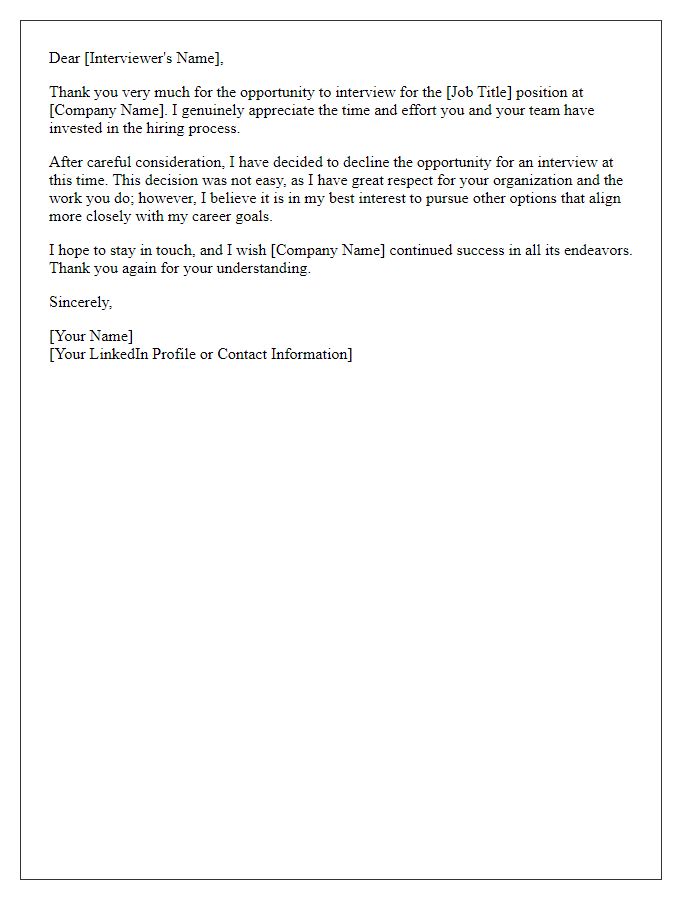
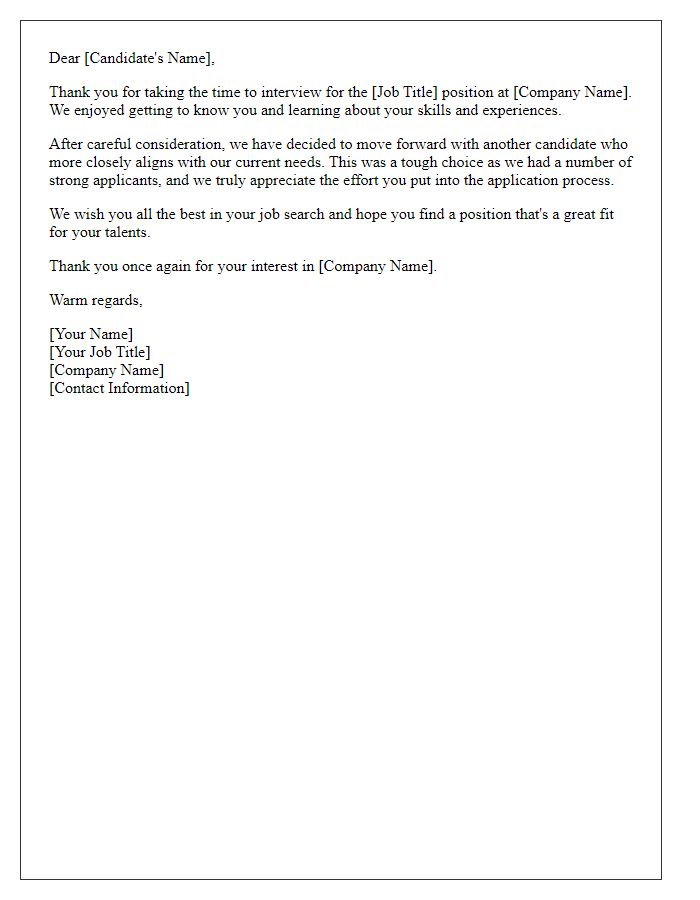
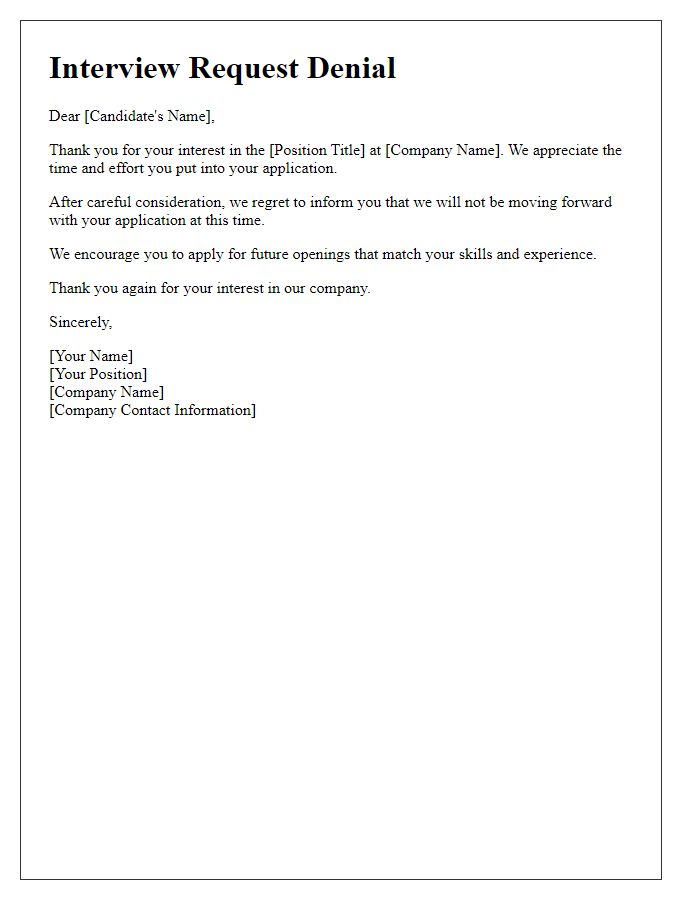

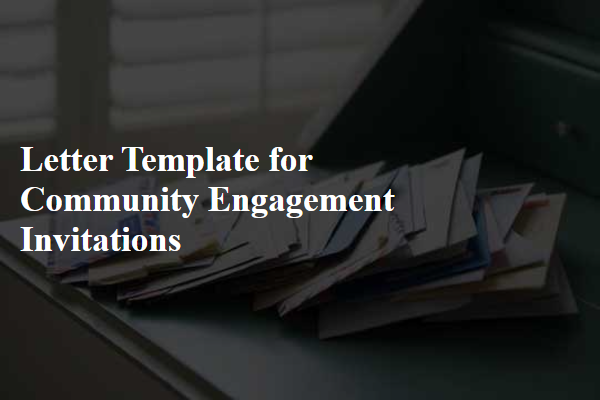
Comments